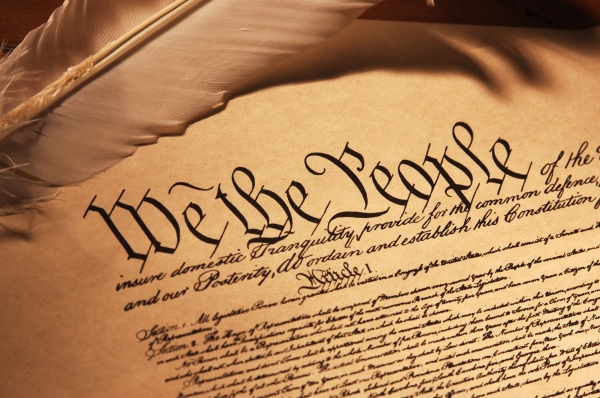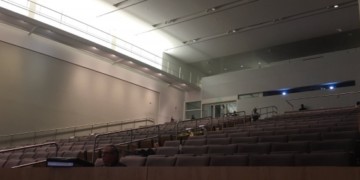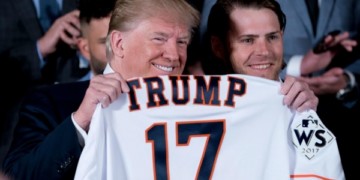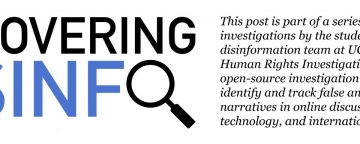 Brenden WeberBlockedUnblockFollowFollowingNov 30
Brenden WeberBlockedUnblockFollowFollowingNov 30
The left and the right on our political spectrum embrace a form of property rights but contradict themselves by never fully accepting the internal concept of that right. Both sides weaponize the Constitution to fit their agenda, leaving the rights of the individual oppressed by the subjective power of government.
For example, the left uses the notion of property rights or rights of an individual to stand up for your right to marry who you wish, your right to an abortion, and your right to do what you will with your body. All of these are about a grouping of property rights, the body. However, the left contradicts themselves by advocating against the material property rights. They do so by calling for increased taxes on the rich, a progressive income tax, and promotion of an expanded welfare state.
On the opposite side of the political spectrum, the right makes property right claims for the material items that the left advocates against. They call for the right to bear arms, lowering taxes, and deregulating business owners; all of which use a grouping of property rights that are more material in nature. Although, they contradict themselves by continually finding issues with bodily property rights; such as being against gay marriage, promoting a federal ban on abortion, and advocating for the war on drugs.
The issue that both the left and the right run into is they’re both not taking the concept of property rights about the individual to its full conclusion. They contradict themselves by choosing certain secondary rights as more important than others when property rights should be seen as the most essential.
In both cases, the different groups use the language of property rights to fit their argument for a particular secondary freedom they are advancing. Such as free speech and the right to bear arms. The consequence of both sides contradicting themselves with regards to property rights leads to a misunderstanding of the right itself and prevents a reliable foundation for human rights. As secondary rights can be grouped under the foundation of the human right to individual property.
A Constitutional Problem
Nonetheless, both ideological sides are not entirely to blame. Our American founding documents fail to embrace and understand the concept of property rights. The Bill of Rights, for example, attempts to protect the rights of citizens by putting restraints on the power of government but instead empowers the government by failing to establish the internal nature of individual rights.
The contention over interpreting the Bill of Rights has problematically granted representatives the ability to formulate interpretations when citizenry pressure arises. This authority comes about from trying to establish these rights within the foundations of government, which creates the perception they are primarily coming from the entity.
The intention of the Constitution and Bill of Rights was not to give government authority the capability to interpret our freedoms. Having these rights written down on paper gives off a perception to both our representatives and citizen body that these rights come from the government, creating a relative mindset as to what human rights are. This has opened the door for representatives, citizens, and groups to believe they can change what rights have been written down because of the perception that the government grants these rights. This is a misunderstanding of rights. Your rights come by virtue of personhood status, they don’t come from something that is written down on paper, and the government does not grant them — they should be protected from it.
An example of this issue is in the First Amendment, which attempts to protect your right to freedom of speech. The case of yelling “fire” in a crowded theater is a commonly used example to justify prohibiting some speech, consequently causing a relative conception of rights. Although, this is not a limit on freedom of speech; your limit of expression is coming from the movie theaters right to protect the integrity of their property.
By going to a movie theater and buying a ticket, the customer agrees to abide by terms established by the owner of the theater; in this case not disrupting the other customers’ experience by falsely yelling “fire” in a crowded theater. The owner follows similar terms, where they can’t falsely yell “fire,” because they to have an agreement with the customers not to disrupt the showing of the film.
Allowing “fire” to unjustifiably be yelled by the customer in the name of free speech, you consequently violate the owner’s right to property by disrupting his services that are under his ownership. This is an accepted case of a limit on free speech, consequently creating a perception of the capability of the government to justifiably limit rights, but also making them relative to individual circumstances.
If we were to embrace the concept of property rights instead fully we would be able to resolve this issue of speech by understanding that this case is a protection of our rights. By doing so, we avoid the relative nature of free speech and instead draw upon the internal nature of property rights.
Another case is the interpretation of the second amendment. The amendment states:
“A well-regulated militia, being necessary to the security of a free state, the right of the people to keep and bear arms, shall not be infringed.”
Here again, we have a situation where current representatives and citizens have a perception of rights being relative, instead of internal. The question comes about, what is a “well-regulated militia?” This is used as a way to limit what arms are necessary to protect ourselves from a tyrannical government which opens the door for regulation and limits on the amendment.
If we were to instead fully establish the concept of property rights as internal to us as humans and our personhood, we avoid this issue of rights being a relative concept. The American left attempts to limit your right to bear arms by questioning what weapons are necessary for the security of a free state. If we were to use property rights, the question would fall flat, as this right does need to address the concept of what is necessary.
The idea of ownership of your property is to do what you will with that property without violating others right to their property. Therefore, you have the right to own any weapon you please. In order to adequately protect your right to bear arms, the right needs to be internalized, and not relative to what the government and citizen activist determine as necessary, and the only way to accomplish this is through the protection of our right to property.
What is our Right to Property?
The question is under constant debate in American politics, international relations, and amongst political philosophical theorists. Most at least agree the concept of rights or human rights are internal to you under your humanity; though even this statement has drawn contention by those who foolishly want to assume they are granted rights by the government.
Consider this, we all agree that every human has a right to their own life. This right implies the right to find and transform resources around us. Granting ourselves the ability to produce that which sustains and advances our life — allowing us to prosper. That product that is us and our creation is our property. That is why individual property rights are essential, the loss of this one endangers the failure of the others that both sides argue over.
Fully embracing the concept of property rights on both the left and the right will give us a better understanding of what human rights are. It will work to prevent relative circumstances that infringe on our human rights and establish the internal nature of them. Lastly, it will better protect our rights from an oppressive government, which is exactly what the Founders intended.


























Connect with us